Foundationals: The New Sustainable Fashion Brand That's Finding Star-Studded Success
Creating low-impact clothing for high-impact women
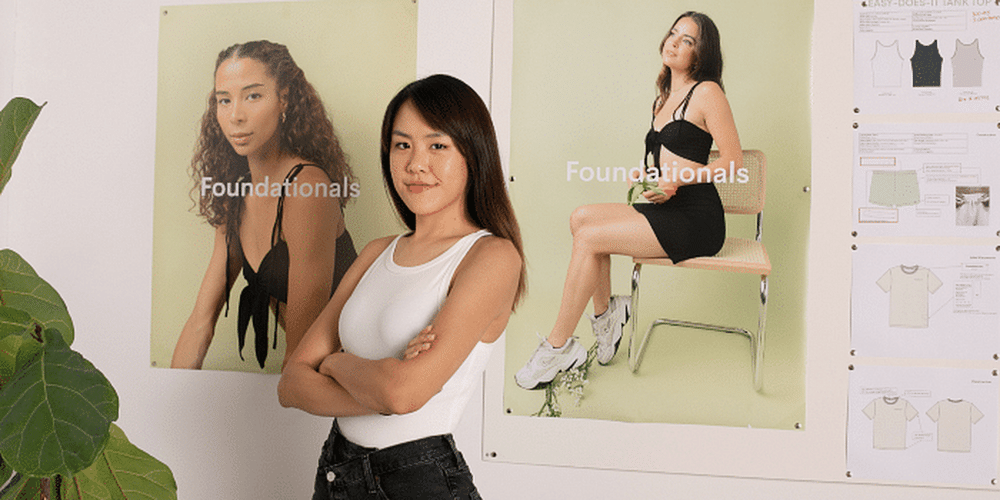
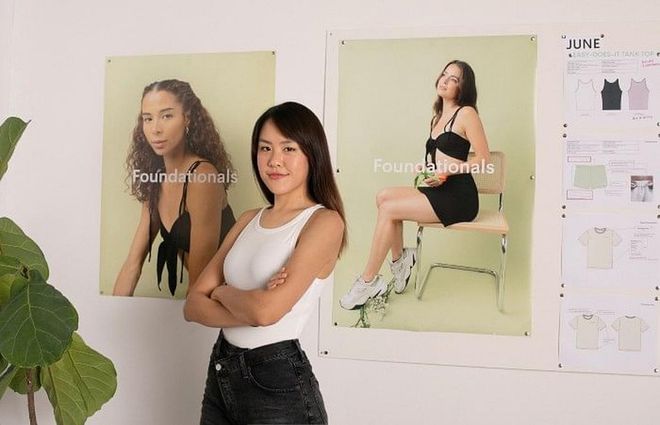
Photo: Courtesy of Foundationals
Philene Tan of Foundationals
Los Angeles-based fashion label, Foundationals, is only a year old yet it has made a name for itself with its ethos of creating low-impact clothing for high-impact women across all walks of life.
It all started with a desire to have a fashion brand she could call her own. Malaysian-native Philene Tan then decided that her label had to stand for change when she discovered the detrimental nature of fast fashion, especially the exploitation and poor conditions garment workers face along with the consequential environmental damage. She eventually teamed up with fellow co-founder Tim Tembrink to make this dream a reality. Fast forward to today, Foundationals not only managed to clinch a backing of a US$20,000 grant from New York-based YMA Fashion Scholarship Fund, celebrities and online personalities including the likes of Lucy Hale, Alicia Silverstone, and Claudia Sulweski are also seen wearing her creations.
We chat with founder Philene Tan who gives us an exclusive look into how Foundationals is run, what inspires her, and why it's important to put sustainability, ethics, and transparency at the forefront, especially as a fashion label in today's industry.
Related article: GINLEE Studio Embraces Slow Fashion With Its Latest Order-On-Demand Initiative
What inspired you to create Foundationals?
Growing up, I was always drawn to fashion and the creative arts; I loved fashion photography, creative direction, styling, and seeing concepts come to life. When I was 17, I started a small T-shirt label in Kuala Lumpur named Rusticwild where I designed 'cut and sew' graphic tees and tanks instead of screen printing them. Clothes have always been special to me—my mother taught me how to sew when I was in high school, although I'm still not the best at it today. Watching the garment making process from start to finish definitely stimulated my interest in the fashion industry. Mostly, I love how putting on like a simple piece of clothing can change your mood and make you feel a certain way. I knew that after graduating from university, I wanted to dive into starting a full-fledged clothing line and that's how Foundationals started.
How does Foundationals set itself apart from other sustainable fashion brands currently available in the market?
With our fun and vibrant take! We believe that shopping sustainably does not mean having to compromise on purchasing fashion-forward styles. Furthermore, we showcase 360-degree tours of our factories on our site. Everything from our trims (labels, hang tags) to our packaging are made out of 100 percent post-consumer materials.
When developing a product, we are committed to use only the most environmentally friendly fabrics on the market. This means refraining entirely from common fibres such as generic cotton, virgin polyester, virgin nylon, or rayon, and opting for more sustainable materials such as organic/up-cycled cotton, recycled polyester, tencel, modal or Ecovero viscose to name a few. We also work with local ethical factories in Los Angeles, and when utilising overseas manufacturers we make sure they are Waste and Resources Action Programme (WRAP) or SA8000 Certified. This means ensuring that we visit the factory a couple of times before we start any kind of development with them. We know that producing anything requires output and a ton of resources, but we believe that it is the responsibility of all fashion brands today to ensure that that impact is thoughtfully minimised.
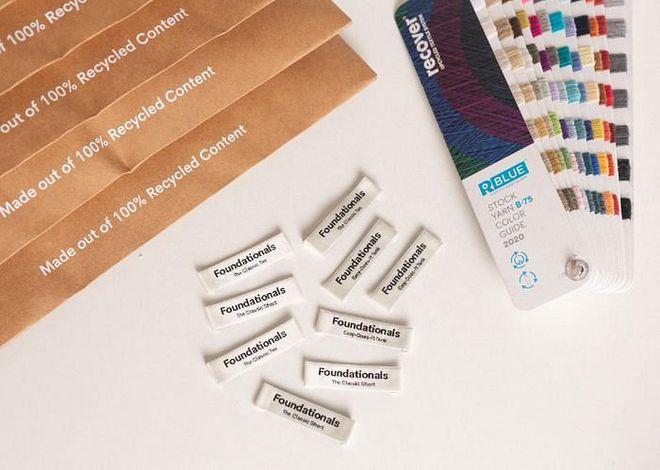
Photo: Courtesy of Foundationals
Why does transparency matter in the garment manufacturing process from start to finish?
It's because most people don’t question where their clothes come from, how their clothes are made, the conditions in which their clothes are made in, or the supply chains involved to make something as simple as a T-shirt. Bringing transparency to the largely shut-door fashion industry will help consumers learn about the garment making process and hopefully help shine a light on the importance of ethical manufacturing.
Why is designing clothes that are sustainable important to you?
With fast fashion basically shaping global retail industry dynamics, I think that it’s imperative that we start consuming clothing more consciously. Sustainability goes beyond the use of eco-friendly materials but also considering the durability of a garment and whether the style has the ability to transcend time.
Where do you currently draw your design inspirations from?
I draw inspiration from memories, music, and feelings that I experience while living and traveling! With Foundationals, our goal is to bring products to life that are functional, effortless, and are the first items you continuously reach for in your wardrobes.
Related article: Emma Watson Joins Board Of Kering In A Move To Tackle Sustainability
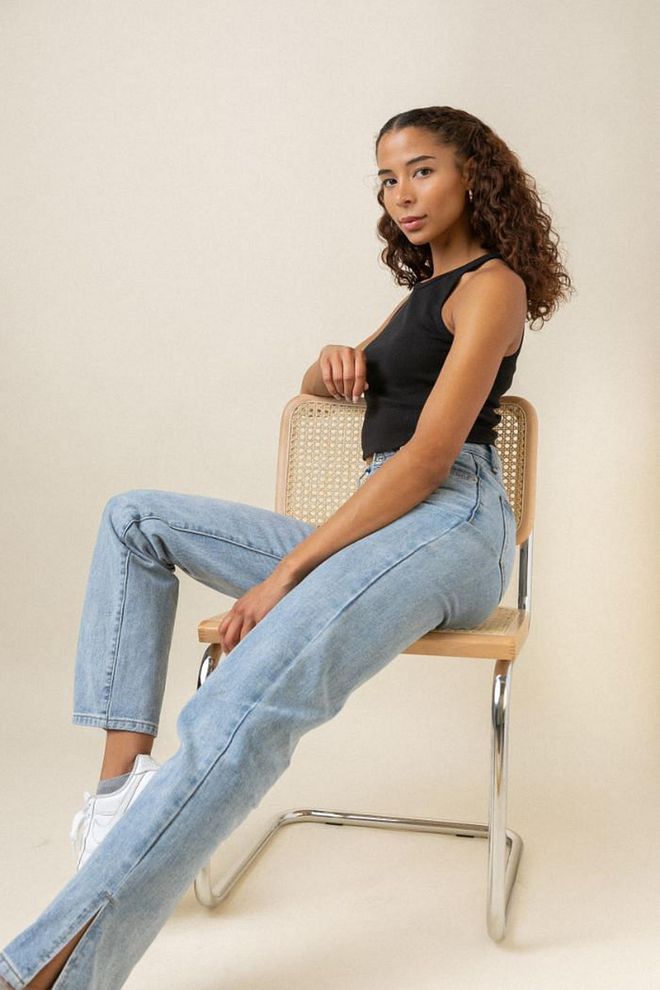
Photo: Courtesy of Foundationals
Foundationals
How have you integrated your diverse background into your label?
My business partner and co-founder Tim majored in Business and Environmental Economics at UC Berkeley while I studied Economics at UC Davis. We’re both from different parts of the world and so we have different perspectives–I’m very creatively inclined while Tim has great business acumen. As a result, we both bring something unique to the table and are able to find synergy while running a sustainably focused fashion brand!
Who is your favourite style icon of all-time that you look up to?
Julia Roberts in the '90s is a total vibe!
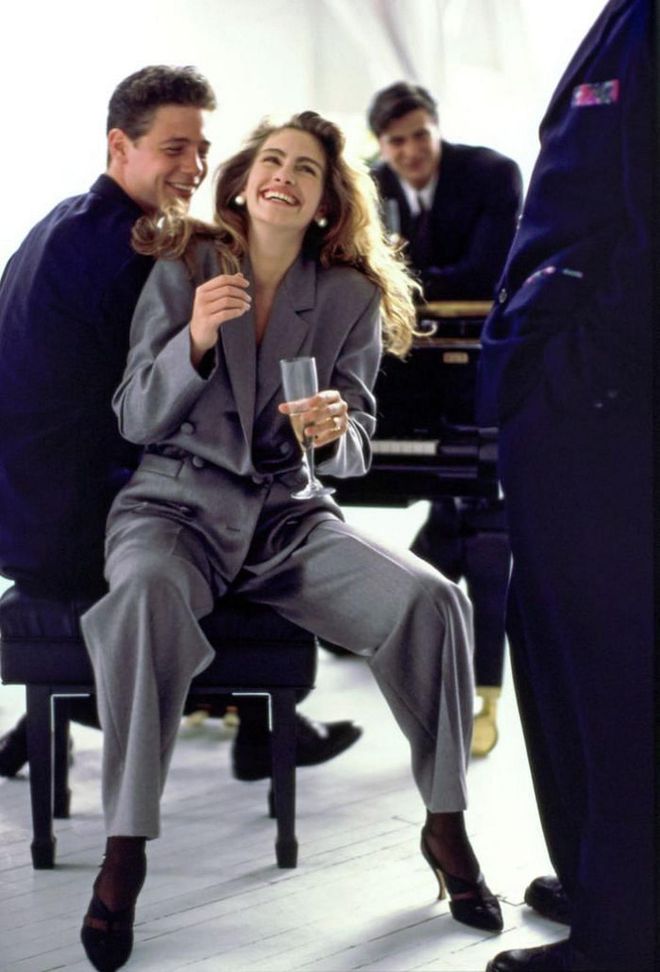
Photo: Arthur Elgort/Conde Nast/Getty
Julia Roberts
What is the biggest lesson you've learned so far?
That failure is inevitable and part of the process. My biggest setback so far has definitely been Covid-19 and navigating production and unpredictability during a global pandemic!
As a young founder of a successful sustainable fashion label, what tips can you give to young hopefuls wishing to join the industry?
I think that resilience towards failure and the ability to learn from mistakes quickly is something that every young designer or entrepreneur should develop early on. I’d encourage anyone hoping to start a fashion label to incorporate sustainability and ethics throughout their brand, and to ensure that you have a strong, hands-on team supporting your creative vision!
What can we look forward to in the future?
An expansion of our product range!
Shop Philene Tan’s Favourite Picks From Foundationals:
Related article: Yumika Hoskin Champions Sustainability With Her Homegrown Label Peco Bag